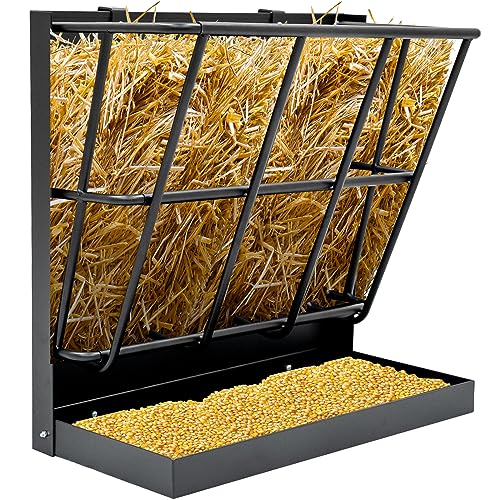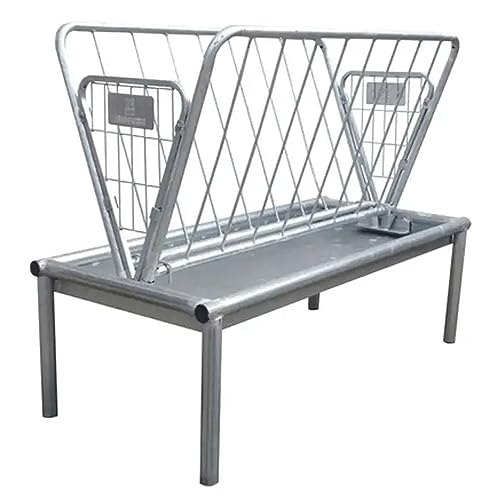Signs of Urinary Calculi in Goats
Raising strong, resilient dairy goats is a great way to have a robust herd, but sometimes, things happen that are out of our control. Get the signs of urinary calculi in goats so you can quickly spot this deadly issue and get professional help before it’s too late.
How to raise dairy goats with preventative care so they stay healthy, but also how to spot issues in some of the more common diseases so you can get help more quickly.
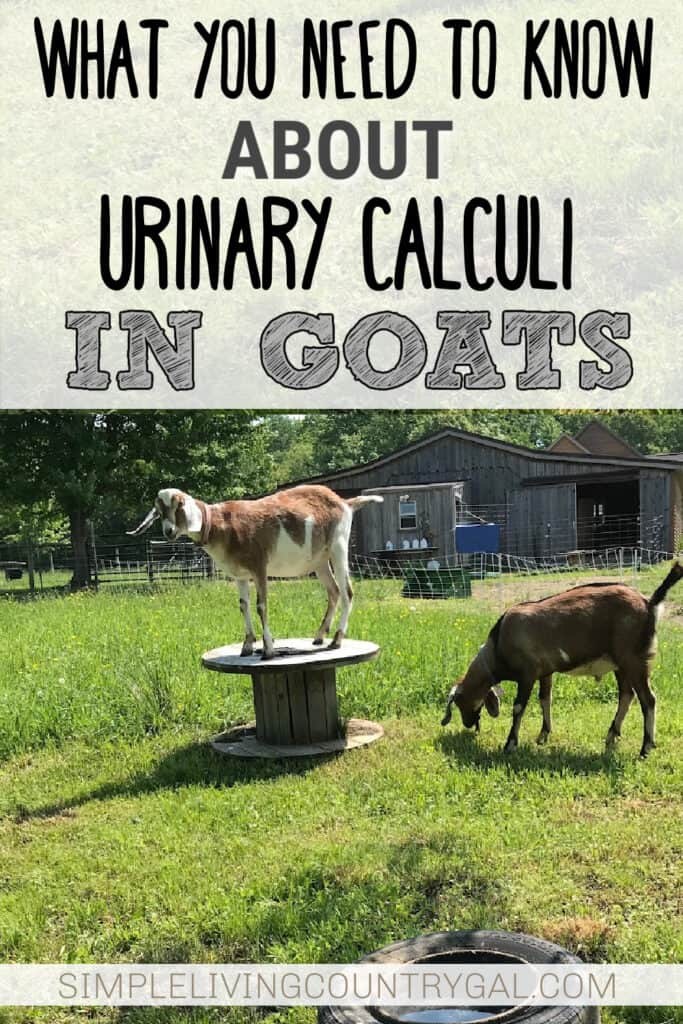
Taking care of our animals is always a top priority for any homesteader and for a good reason. We care about them, and we want them to flourish year-round. Not only is this good husbandry practice, but it is good business practice as well.
The good news is you can reduce outbreaks of all kinds of issues with good preventive care. The bad news is not all of those issues can be avoided. And that is when knowing the signs so you can catch things early on comes into play.
This is especially true with Urinary Calculi, and if you are not sure what to watch for, your goats can decline quickly.
Disclaimer: In accordance with FDA guidelines, the information and products offered on this website are not intended to diagnose, treat, cure, or prevent any disease. I am not a medical professional. Before administering any medications to your animals please contact a veterinarian first.
Why is Animal Care so Important?
Animal care and health support are an important part of raising healthy livestock on a homestead. For many setups, animals play an important role by contributing things like milk, eggs, fleece, and meat, as well as adding to the fertility of the soil through their manure.
Poor animal health can lead to decreased production and potential loss of livestock, which can really impact a homestead as well as the bottom line. My goal is always to encourage the health of our animals so we can prevent as many issues up front rather than deal with an outbreak later on.
What is Urinary Calculi in Goats?
Urinary Calculi is a serious health condition that primarily affects male goats. It is often compared to kidney stones in humans. The condition occurs when stone-like crystals are formed in the urinary tract of the goat. These crystals can cause blockages in the urethra, keeping urine from leaving the body.
Urinary Calculi can be painful and cause potentially life-threatening complications. The condition is typically caused by a diet high in phosphorus and low in calcium, although other factors like dehydration or genetics can also be a reason. Knowing the signs to watch for can help with early detection and treatment, which will be a huge benefit to keeping your entire herd healthy.
What Causes Urinary Calculi in Goats?
Urinary Calculi is mainly caused by an imbalanced diet, one that is high in phosphorus and low in calcium. Minerals from too much phosphorus clump together, causing stones of a size that can not be easily passed in the urine. Since male goats have such a long urethra, these stones can become deadly quickly by blocking the exit and causing a build-up of urine in the body. That is why a buck and wether’s diet is so important.
Signs Of Urinary Calculi in Goats
Early detection of Urinary Calculi in goats is crucial for effective treatment from a livestock animal vet.
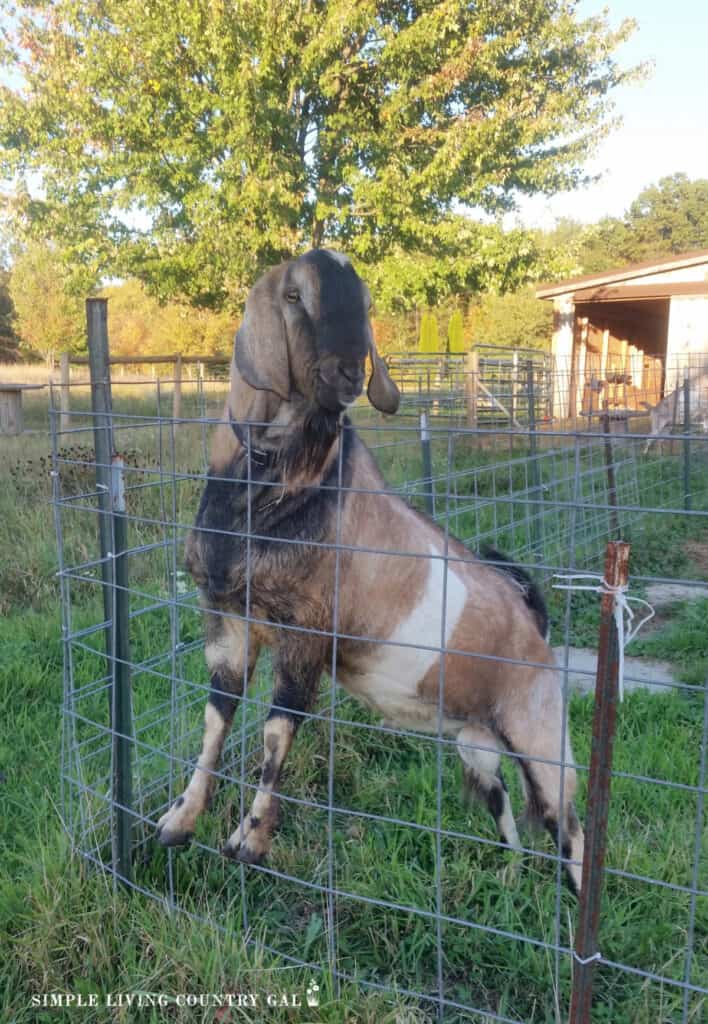
Key signs include:
#1. Difficulty urinating – This includes squatting with no urine flowing, frequent attempts to urinate with little or no success, and the production of urine in small amounts or dribbles.
#2. Pain – The goat may also show visible pain, often exhibited through kicking or biting at the abdomen.
#3. Physical signs – Frequent lying down and getting up or stretching out as if attempting to urinate.
#4. Eating – Other signs could include reduced appetite or complete loss of appetite.
#5. Lethargy – Your goat may show a general decrease in activity. In the later stages, the goat may become weak, start isolating themselves, or exhibit symptoms of depression.
Recognizing these signs early on can lead to quicker intervention, improving the chances of a successful recovery.
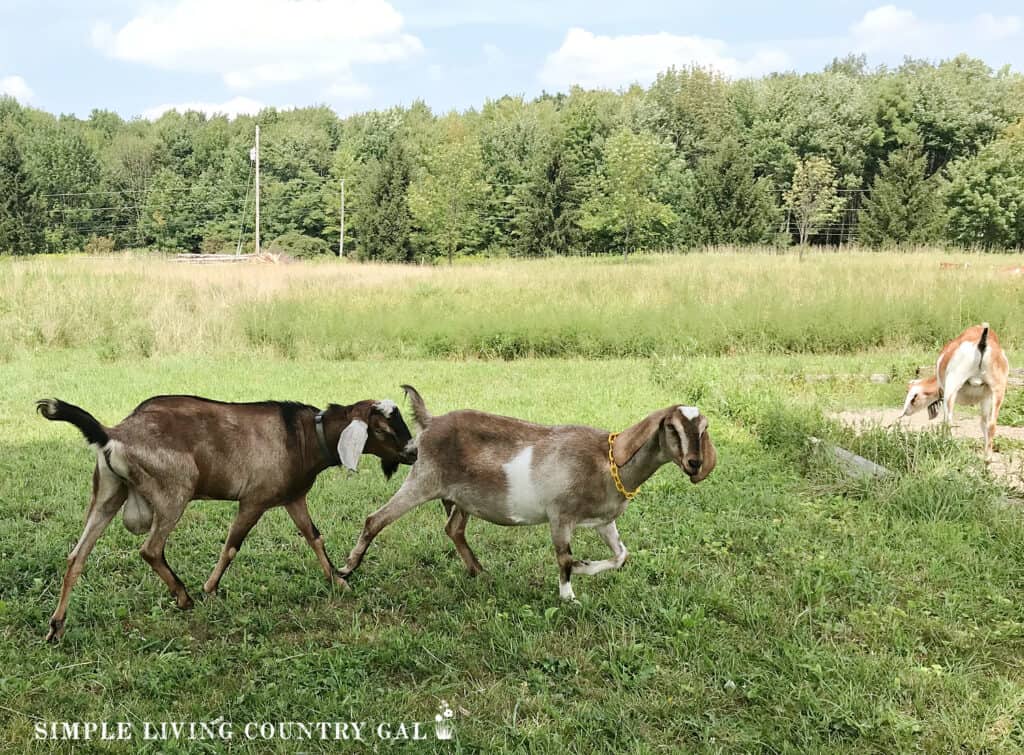
How to Improve Diet in Your Goats
Maintaining a balanced diet is pivotal in preventing Urinary Calculi in goats. A diet that is high in calcium and low in phosphorus is generally recommended.
Here are some dietary practices that can help:
#1. Balanced Ration – Provide a balanced ration that meets the nutritional needs of the animal. This includes appropriate levels of protein, energy, vitamins, and minerals.
#2. Monitoring Mineral Intake – Monitor the mineral content of the feed. The calcium to phosphorus ratio should be 2:1 to prevent the formation of urinary calculi.
#3. Plenty of Fresh Water – Ensure goats have access to plenty of fresh, clean water, as it helps in flushing out excess minerals from the system, minimizing the risk of stone formation.
#4. Limiting Certain Foods – Limit foods high in phosphorus like grain and bran. If such foods are necessary, balance them with high-calcium feeds like alfalfa.
#5. Use of Ammonium Chloride – Ammonium chloride can be used as a urinary acidifier to help prevent stone formation. Consult with a vet for the correct dosage.
By implementing these dietary practices, the risk of urinary calculi in goats can be significantly reduced. It’s important to remember, though, that diet alone will not guarantee prevention, regular check-ups and prompt veterinary care at the first sign of trouble are equally important.
Goat Pulling Harness with Tugs Pulling Carts, Wagons Brush Work (Standard, Red)


Other Possible Preventive Measures
Aside from diet, there are several other preventive measures that can be taken to reduce the risk of Urinary Calculi in goats.
#6. Regular Exercise – Regular exercise helps in keeping the urinary tract active and promotes healthy functioning. It can also help to dislodge any potential blockages.
#7. Regular Health Check-ups – Regular health check-ups can help in early detection and treatment of the disease. It’s recommended to get your goats checked at least twice a year.
#8. Controlled Breeding – Studies have found a correlation between the onset of urinary calculi and the breeding process. Proper breeding management can potentially reduce the risk.
#9. Hygienic Living Conditions – Maintaining a clean and hygienic living environment for the goats can prevent the spread of infectious diseases that could exacerbate urinary calculi.
Remember, these are merely additional preventive measures and are not a substitute for a balanced diet and prompt veterinary care.
TMEE Hay Feeder Goat 2 in 1 Horse Sheep Hay Rack with Grain Detachable Grain Tray Wall Mount or Hanging Feeder Heavy Duty Galvanized Steel Hay Basket for Cattle Cows Livestock in Farm



How to Treat Urinary Calculi
I have learned an important lesson after 15 years of raising dairy goats. If our goat is sick we get help from a vet. This is especially true if you suspect your goat has Urinary Calculi.
Do not try to treat it. Get a licensed vet to help. You only have a short time window to prevent a life-threatening issue, so rule on the side of caution here.
SLCG Pro Tip: If you raise any animal on your homestead, you need to have a relationship with your vet. Even if there is no livestock vet in your area, reach out to the one you have and talk to them. It’s true they may not treat large animals, but their knowledge can still be helpful when issues do come up.
Preventive care and early detection will help you recognize an issue early on. Implementing a balanced diet, ensuring regular health check-ups, keeping a clean barn or shelter, and providing a stress-free living space are all great preventive measures. Your number one tool is for early detection because it is the key to catching things early. Finally, having an open line of communication with your vet, as well as having regular vet check-ups, will all work toward a herd that is healthy and thriving.





